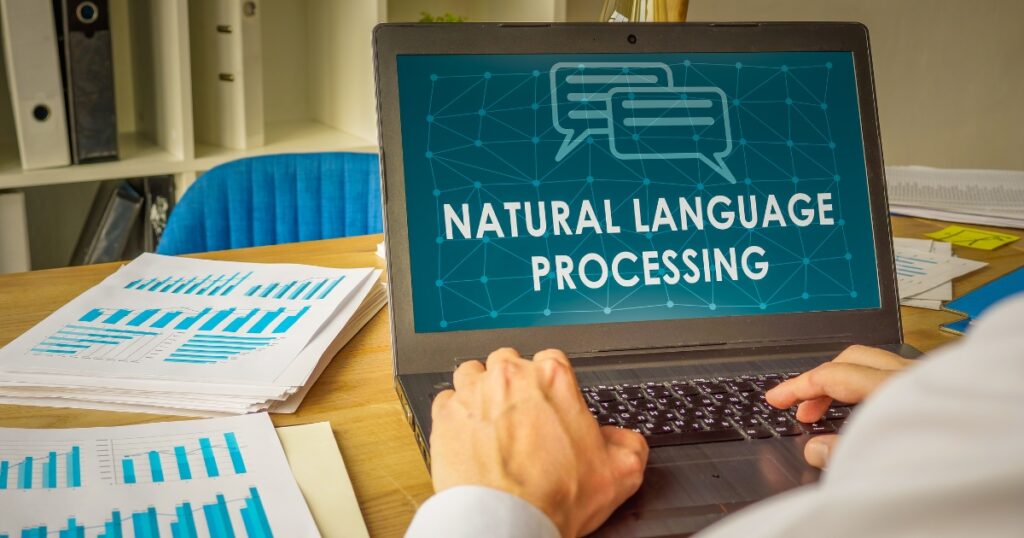Artificial intelligence is rapidly transforming our world including health care, finance education, entertainment every sector, and everything. As it grows gradually the demand for AI will be growing soon. It’s not dangerous to be scared and try to get away from it, but it’s time to understand it and use it in our daily lives to make it easier for work.
If you are thinking no no no I am not going to adopt AI because it’s bad for humans and, I will do all of my work myself, you lose a great opportunity. You know, there are lots of people who make money with AI, they start their own business because of AI. So, AI is a great opportunity that is why we came back with 9 AI skills that you need to know to stay ahead of 97% of people.
Table of Contents
The 9 AI Skills You Need Now to Stay Ahead of 97% of People

Prompt engineering
Imagine you have a magic lamp containing a powerful genie, but you only get one wish. If you ask the wrong question, your wish might be wasted. Prompt engineering is similar. It’s the art and science of crafting the right questions, or “prompts,” to unlock the full potential of AI language models like GPT-4.
Think of GPT-4 as a powerful genie. It holds vast knowledge and can generate amazing things, but it needs specific instructions to perform its magic. If your prompts are vague or poorly worded, you won’t get the desired outcome.
What makes a good prompt engineer?
- Context awareness: Understand the context of your request and tailor your prompts accordingly.
- Precision in language: Use clear, concise, and unambiguous language to avoid misinterpretations.
- Anticipating potential responses: Consider different ways the AI might interpret your prompt and refine it to ensure your desired outcome.
Let’s see an example:
You’re a content writer tasked with creating a blog post about dating apps. Instead of a generic prompt like “Write a blog about dating apps,” you craft a more specific and engaging prompt:
“You are now an expert relationship coach. I want you to write a blog post about the top five benefits of using dating apps for men.”
By refining your prompt, you provide additional context and guide the AI towards creating a more relevant and targeted blog post.
Remember, prompt engineering is a skill that requires practice and experimentation. By constantly refining your prompts and learning from your results, you can unlock the full potential of AI and become a true wizard of language!
AI-Powered personal branding
In the age of AI, personal branding has gotten a major upgrade. By leveraging AI tools, you can create a unique and memorable brand that stands out. Imagine your personal brand as a mosaic, built with pieces that represent your skills, values, and contributions. Now, picture using AI to enhance and refine each piece, making your brand even more vibrant and captivating.
Let’s imagine a freelance graphic designer looking to build their brand. They can use AI design tools to create eye-catching portfolio pieces that demonstrate their skills and creativity, instantly impressing potential clients.
AI-powered personal branding isn’t just about automation; it’s about the strategic use of technology to enhance your existing strengths and create a compelling online presence. So, embrace the power of AI and elevate your brand to the next level!
Data Storytelling & Visualization

In today’s data-driven world, raw numbers often fall flat. Data storytelling and visualization bring those numbers to life, turning them into captivating narratives and visuals that resonate with audiences.
This skill is crucial in the age of AI for two key reasons:
- Extracting meaning from the data deluge: As AI excels at processing massive datasets, our ability to interpret and communicate insights becomes paramount. Data storytelling bridges the gap between cold data and human understanding, making complex findings accessible and relatable.
- Persuading and inspiring action: Data alone can’t move hearts and minds. Storytelling allows you to craft compelling narratives that not only inform but also evoke emotions and motivate audiences.
Let’s illustrate the power of data storytelling with two examples:
1. Non-Profit Organization & the Water Crisis
Imagine a non-profit tackling water scarcity. By transforming data on water usage and environmental factors into interactive maps and animated infographics, they can visually illustrate the crisis’s severity and inspire action. This can spark donations, volunteerism, and support for sustainable solutions.
2. Product Manager & User Data
Imagine a product manager presenting user data to their team. Instead of drowning them in spreadsheets, they use data storytelling to create a concise narrative highlighting key user pain points and the potential impact of proposed solutions. This clarity can drive better product decisions and user satisfaction.
In both cases, data storytelling makes information more accessible, persuasive, and impactful. It empowers us to not just analyze data but to use it to connect with audiences and create meaningful change. By mastering this skill, you can transform yourself into a powerful communicator and leader in the age of AI.
Creative AI Thinking

The AI revolution is upon us, and with it comes the need for a new way of thinking. It’s no longer enough to simply understand how AI works; we must also develop the ability to envision novel and transformative applications for this powerful technology. This is where creative AI thinking comes in.
Creative AI thinking is about looking beyond the mundane and exploring the uncharted territory of what AI can achieve. It’s about pushing the boundaries of imagination and sparking groundbreaking solutions that were once thought impossible.
Let’s see how creative AI thinking can transform different creative fields
- Digital Art: Imagine an artist leveraging AI to generate mesmerizing visuals that transcend traditional art forms. By collaborating with AI’s pattern recognition and generative capabilities, they can create truly groundbreaking pieces that push the boundaries of artistic expression.
- Music Composition: Picture a musician using AI to compose music that blends genres and styles in entirely new ways. By harnessing AI’s ability to analyze and generate music, they can break free from conventional composition techniques and create unique soundscapes that inspire and captivate listeners.
Creative AI thinking isn’t just about technology; it’s about the human-machine collaboration that drives innovation. By harnessing our imagination and collaborating with AI, we can unlock a future filled with boundless possibilities and groundbreaking solutions. So, embrace your creativity, explore the potential of AI, and join the revolution in creative AI thinking!
AI Business Strategy Implementation
In today’s dynamic landscape of AI, having a clear business strategy and implementation plan is no longer a luxury, it’s a necessity for staying ahead of the curve. But what defines an effective AI business strategy and how can it be implemented successfully?
Let’s explore how an AI business strategy can benefit an organization
Retail Optimization: Imagine a retail company using AI-powered forecasting and inventory management. This not only streamlines operations and reduces waste but also boosts profit margins by ensuring sufficient stock levels and minimizing product overstocking.
The key to success lies in a comprehensive approach
- Data governance: Establish clear guidelines for data collection, storage, and access to ensure compliance with privacy regulations.
- Employee training: Equip your workforce with the knowledge and skills needed to understand and interact with AI effectively, minimizing resistance and maximizing adoption.
- Continuous improvement: Monitor the impact of your AI implementation, analyze results, and adapt your strategy accordingly to ensure continuous optimization and sustained success.
By developing and implementing a strategic plan for AI integration, businesses can unlock unprecedented opportunities for growth, innovation, and competitive advantage. Remember, AI is not just a technology; it’s a powerful tool that can transform your business, but only if used wisely and strategically.
AI Project Management
As AI permeates diverse industries, the demand for skilled AI project managers is soaring. But what does it take to excel in this role and why is it so vital in the age of AI?
AI project management requires a unique blend of skills
- Technical expertise: Understand the fundamentals of AI technology, including machine learning, natural language processing, and computer vision.
- Non-technical skills: Possess strong leadership, communication, collaboration, and problem-solving abilities to effectively oversee project teams and stakeholders.
- Cross-functional coordination: Navigate complex project landscapes, bridging the gap between technical teams, business stakeholders, and end-users.
- Resource management: Effectively manage budgets, timelines, and resources to ensure project success.
- Risk mitigation: Anticipate potential challenges, such as data bias, ethical concerns, and technical hurdles, and develop contingency plans to address them.
Let’s see how an AI project manager drives success in a real-world scenario
Airline Customer Service Chatbot
Imagine you’re tasked with implementing an AI-powered customer service chatbot for a major airline. As the AI project manager, you’ll:
- Liaise with stakeholders: Understand their needs, expectations, and success metrics for the chatbot.
- Identify key requirements: Define the chatbot’s features, language capabilities, and integration with existing systems.
- Align with brand and customer service standards: Ensure the chatbot reflects the airline’s brand voice and customer service philosophy.
- Anticipate challenges: Consider potential issues like language barriers, cultural sensitivities, and system integration complexities.
- Develop contingency plans: Prepare solutions to address potential challenges and ensure smooth project execution.
An effective AI project manager acts as the conductor of an AI symphony. They orchestrate complex projects, navigate diverse challenges, and lead teams toward successful AI implementation, ultimately driving significant value for their organizations. As the demand for AI solutions continues to rise, the vital role of skilled AI project managers will become increasingly crucial in shaping the future of various industries.
Natural Language Processing

Natural Language Processing (NLP) is the AI subfield dedicated to understanding and interpreting human language. While it might seem technical, a basic grasp of NLP is invaluable for anyone navigating the AI revolution.
Let’s see how NLP empowers a social media manager
Product Launch & Sentiment Analysis
Imagine a social media manager using NLP-powered sentiment analysis tools to gauge public opinion about a new product launch. By understanding the principles of NLP, they can:
- Craft precise queries: Formulate specific questions to gather targeted data and avoid ambiguous results.
- Interpret sentiment analysis results: Analyze the data to understand the overall sentiment towards the product, identify key concerns or positive responses, and gauge overall public perception.
- Devise effective engagement strategies: Utilize insights from sentiment analysis to tailor messaging, personalize communication, and address any negative feedback constructively.
A basic understanding of NLP opens up a world of possibilities. From interacting with AI-powered devices to creating impactful content and analyzing audience sentiment, NLP empowers you to navigate the AI revolution and thrive in a world increasingly driven by language.
Curiosity and Continuous Learning
In the ever-evolving world of AI, curiosity and continuous learning are your secret weapons for staying ahead of the curve. But why are these traits so important and how can you cultivate them in your professional journey?
Let’s see how curiosity and continuous learning benefit a marketing professional
Discovering and Mastering New AI Tools
Imagine a marketing professional who discovers an AI-powered tool that can optimize their advertising campaigns. Driven by curiosity, the marketer delves into learning the tool’s capabilities, testing different features and configurations to determine the most effective strategies.
By embracing continuous learning, the marketer not only enhances their skillset but also unlocks new possibilities for their organization. They can now:
- Create more targeted and effective advertising campaigns, leading to improved conversion rates and higher ROI.
- Save time and resources by automating repetitive tasks, allowing them to focus on more strategic initiatives.
- Gain valuable insights into customer behavior and preferences, enabling them to tailor their marketing efforts to specific audiences.
Curiosity and continuous learning are not just desirable traits; they are essential for success in the age of AI. By cultivating these qualities, you can unlock your full potential and thrive in this dynamic and exciting world. Remember, the journey of learning never ends, and in the ever-evolving world of AI, your curiosity is your compass and your continuous learning is your fuel.
Intuitive understanding of AI limitations
Recognizing the limitations of this powerful technology is crucial. This intuitive understanding empowers us to make informed decisions, mitigate risks, and champion responsible AI practices.
Let’s see how an HR professional benefits from understanding AI limitations
Recruiting with AI-powered tools
Imagine an HR professional using AI to screen job applications. While AI can efficiently handle large volumes of applications, it’s critical for the professional to:
- Be aware of potential bias: Recognize that AI systems are trained on data sets that may reflect existing societal biases and take steps to mitigate their impact on the hiring process.
- Utilize AI as a tool, not a decision-maker: Rely on AI for initial screening but ultimately use human judgment to assess candidates’ skills, experience, and cultural fit.
- Prioritize ethical implementation: Ensure transparency in AI usage, provide clear explanations for AI-based decisions, and offer candidates opportunities to appeal or provide feedback.
By fostering an intuitive understanding of AI limitations, the professional can leverage the technology for efficient recruitment while promoting fairness and ethical practices.
Remember, AI is a powerful tool, but it’s not a magic solution. By acknowledging its limitations and embracing responsible AI practices, we can harness its potential for a brighter future.
You might like this articles
